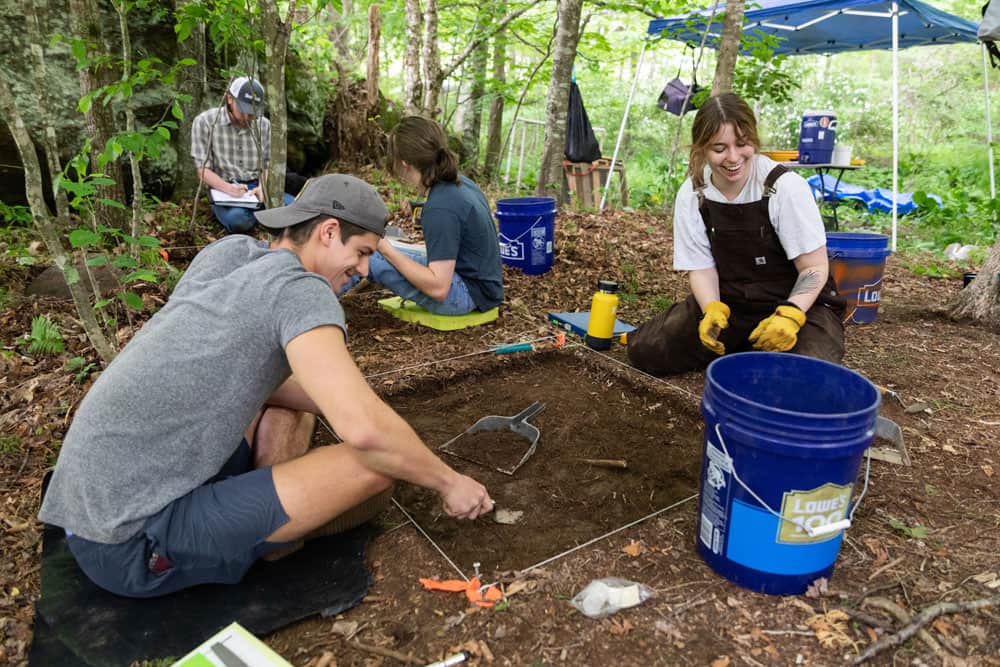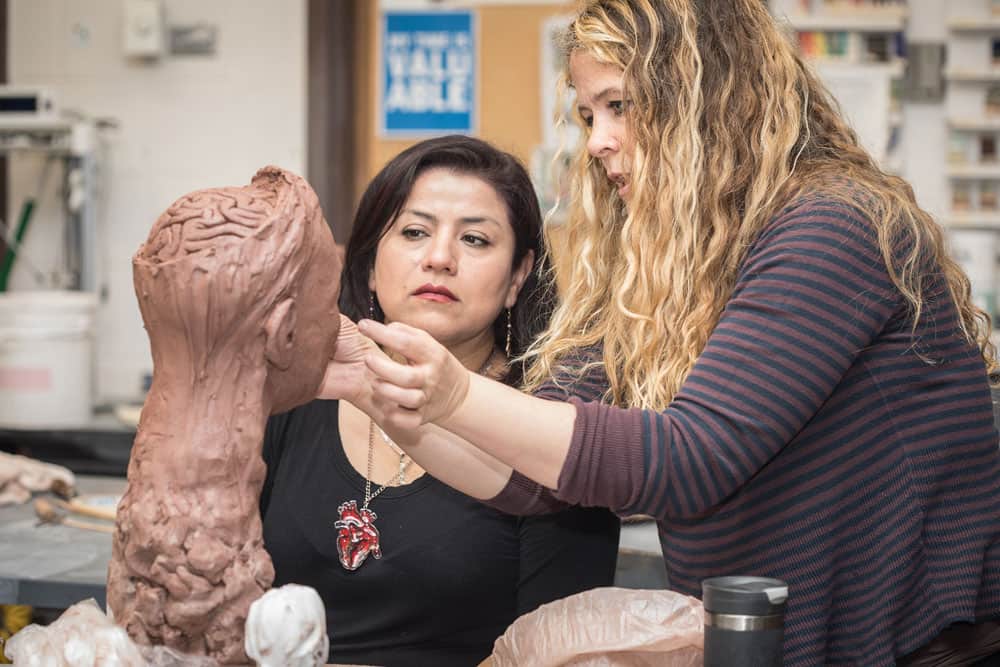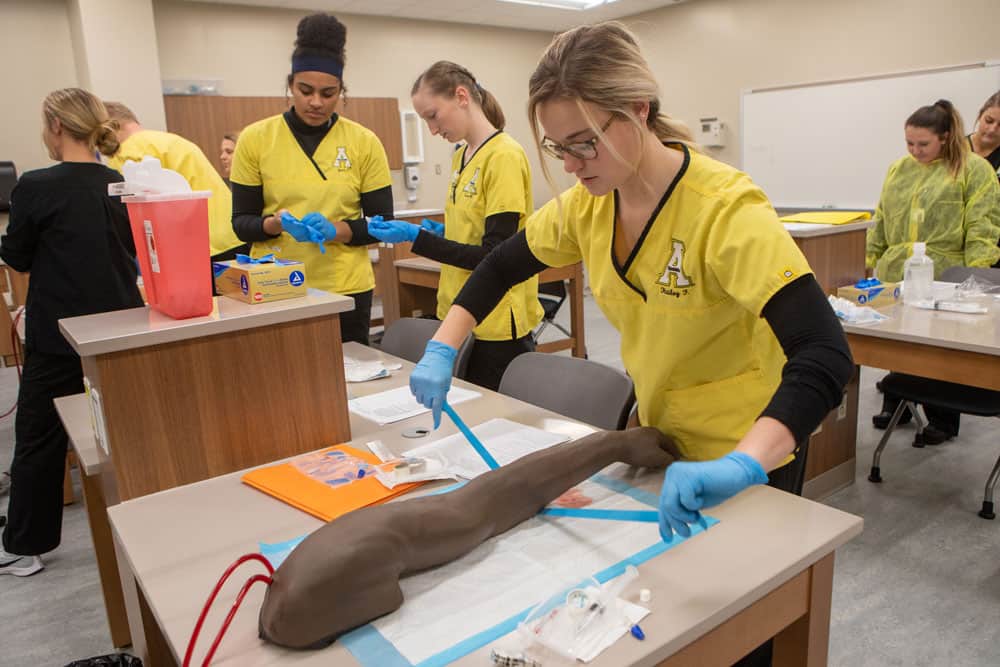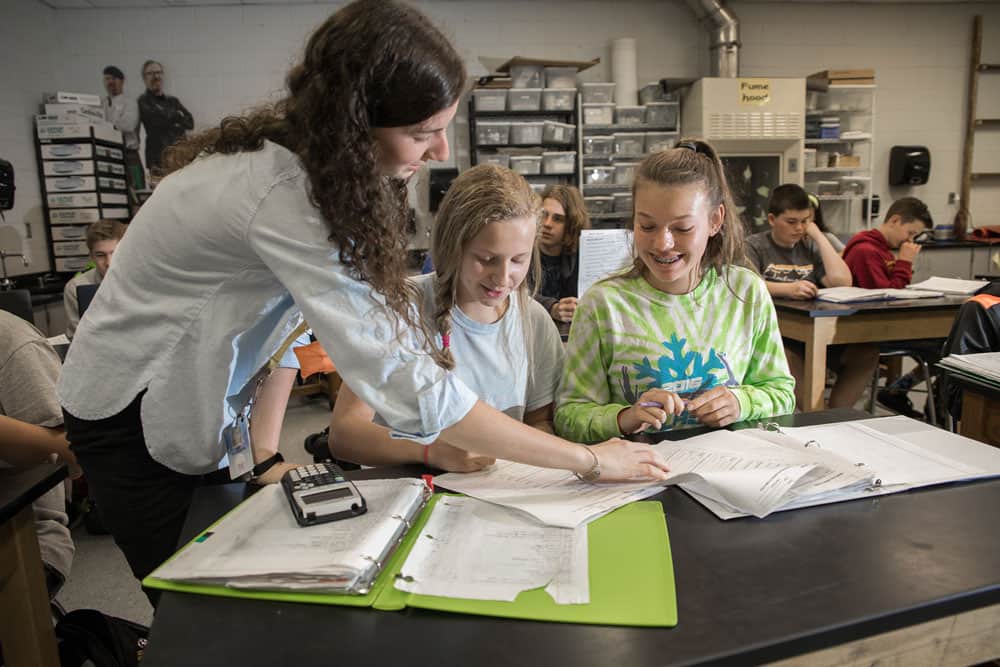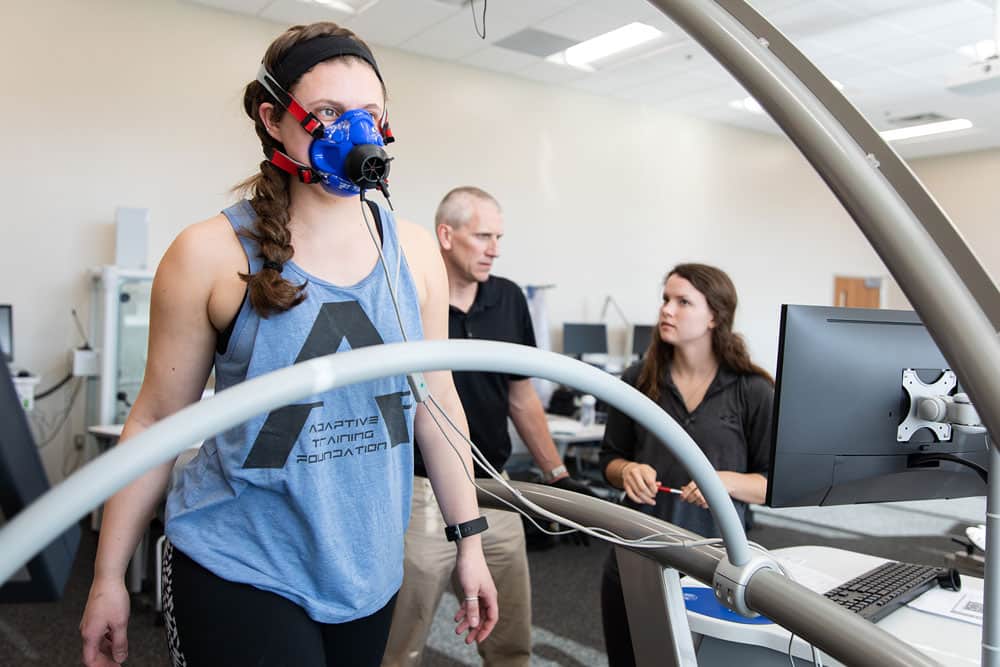Quick Facts
-
16:1
student-to-faculty ratio
-
25
average class size
-
150+
undergraduate and graduate degree programs
-
98%
of full-time faculty have the highest degree in their fields
-
7800+
students participate in academic internships each year
-
4+1
Accelerated Master's Program (earn your bachelor’s and master’s degrees in 5 years)
Explore our Degree Programs
App State offers over 150 bachelor’s degrees and 80 graduate programs — in person and online. Discover and refine your passions, conduct research alongside world-class faculty and be a part of a community of learners, creative thinkers and effective communicators.
-
Undergraduate Programs
Our interdisciplinary, inquiry-based learning, which begins with First Year Seminar, will help you develop as a critical and creative thinker, an effective communicator, an inquisitive local-to-global learner and a responsible member of your community.
-
Graduate Programs
Expand your options, deepen your knowledge and advance your career with the guidance of engaged and respected professors and expert advisors leading top-ranked, accredited programs. You’ll also find opportunities for collaborative research in your chosen field.
-
Doctoral Programs
We offer two doctoral programs — both extensions of areas of study where App State excels: education and service to rural communities.
-
App State Online Programs
App State Online offers a variety of high-quality degree programs that adapt to — and enrich — your life while you live it.
-
Certificate Programs
Not ready for a four-year commitment? App State lets you order your education a la carte — our certificate programs often require less time commitment, less expense and are designed to build your skills and expertise in an area of your particular interest.
Welcome to the Appalachian Experience
You’ll thrive in our challenging and supportive academic environment which enables research, advocates for sustainability, provides a global perspective and builds community through service.
-
Research
Even our first-year students engage in scholarly research that opens doors to sought-after internships and post-graduate degrees.
-
Sustainability
The core values surrounding economic and social equity and environmental resiliency are key components of our academic and student life.
-
Global learning
We take a worldview at App State. You'll make diverse cultural discoveries within the Appalachian Community, through study abroad or in the classroom.
-
Community and service
Mountaineers move mountains. Through service and outreach, on campus and beyond, you will step outside yourself and discover the difference you can make for others.
We think an App State education is unbeatable. We aren’t alone.
National publications annually recognize App State as one of the nation’s top-performing schools for its academics, value, innovation and student veteran services and programs to enhance the first-year experience, among other aspects.
Choosing Your Path
Colleges and Schools at App State
App State's five undergraduate colleges, one music school, one Honors College and one graduate school offer more than 150 bachelor’s degrees and 80 graduate programs — on campus and online.
-
College of Arts and Sciences
Courses of study offered here span the humanities and the social, mathematical and natural sciences. The college’s values lie not only in service to the university and local community, but through inspiring, training, educating and sustaining the development of its students as global citizens.
-
College of Fine and Applied Arts
This dynamic and innovative college includes opportunities to explore Applied Design, Art, Communication, Military Science and Leadership, Sustainable Development, Sustainable Technology and the Built Environment, and Theatre and Dance.
-
Beaver College of Health Sciences
The Beaver College of Health Sciences is dedicated to enhancing health and quality of life in our state and beyond. Find your personal mission pursuing studies in Rehabilitation Sciences, Public Health and Exercise Science, Nursing, Nutrition and Health Care Management, Recreation Management and Physical Education, and Social Work.
-
Hayes School of Music
The Hayes School of Music prepares young musicians for professional lives as performers, composers, music educators, music therapists, conductors and music industry professionals, ensuring the next generation of musical leadership for the state, region and nation.
-
The Honors College
Helping extraordinary students develop independent and creative thinking and high-level research skills, the Honors College serves a diverse group of high-achieving, high-potential, highly motivated students from all majors.
-
Reich College of Education
Odds are very high one of your favorite teachers is a graduate of the Reich College of Education — at least one RCOE grad teaches in every county in NC. Find your place in the classroom or as a specialist or administrator.
-
Walker College of Business
In the Walker College of Business you will find opportunities for International experiences, explore sustainable business practices, sample entrepreneurial programs and participate in real world applications with industry.
-
Cratis D. Williams School of Graduate Studies
Reach your next level of career advancement and preparedness in the Cratis D. Williams School of Graduate Studies. Choose from 80 graduate degrees and certificate programs, including doctoral programs in education and psychology.
Academic Resources and Support
Appalachian has the resources and support students need to stay focused and on track — academically, financially and personally.
Top reasons you should go to App State
App State is known for its special combination of people and place, set in one of the country’s most beautiful locations — the perfect setting to strengthen your academic focus, discover your passions, enhance your leadership skills and take the next step in your life’s journey.

